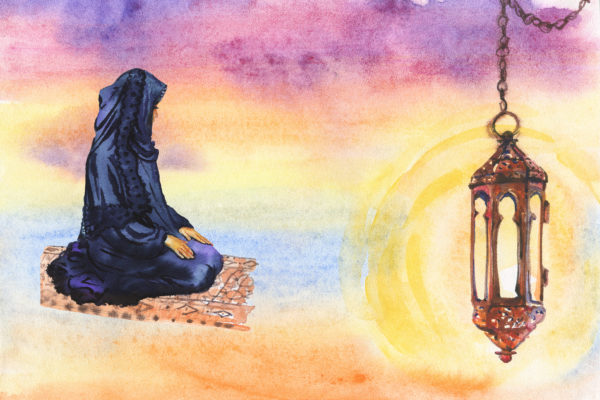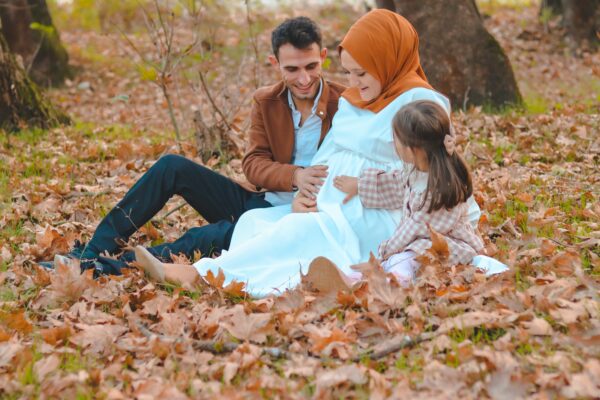It had been raining all day in Karachi, commencing the annual monsoon in July, as I set out to my prenatal appointment at South City Hospital. The ultrasound technician ran down a list of protocol answers, and then she asked if I wanted to know the sex of the child. I said yes, and she replied, “Congratulations, it’s a girl!” I didn’t say thank you, instead, I asked, are you sure it’s a girl? She confirmed and suddenly I was overwhelmed with a whole lot of disappointment. It wasn’t a boy. I came outside crying in a room full of pregnant women that probably thought I was shedding tears of joy. Why wasn’t I happy?
In hindsight, it pains me to think that once upon a time I upheld ideas that perpetuate gender discrimination in our society. For many people like me, this gendered prejudice can be traced back to our roots. I was born in a home that was already ridden with patriarchy, with the problems and conflicts that this would create already embedded inside of me.
My mother got married in a joint-family home that she shared with her in-laws. My grandmother had coerced my father into the marriage, believing my mother would make an ideal, submissive daughter-in-law for her family. My parents had three daughters in three consecutive years, and most of the child-raising responsibility fell on my mother.
I cannot recall a time in our childhood when my father took time out to have a one-on-one conversation with my sisters and me, or spend quality time playing with us. He would be out of the house most of the time and come back after we would be asleep. Unfortunately, when there is no communication, even the bridges built on blood relations fall apart.
As we got older, instead of keeping a hand of grace, he kept eyes of suspicion on us. We were never encouraged to study; none of my paternal aunts had studied further than 10th grade. In 6th grade, my father removed my younger sister and me from our English-immersion school to a local neighbourhood Urdu-immersion school so we could give company to our cousin. In our home, sadqa would primarily be taken out for the men in the household because their lives were perceived to have more value than women.
There are many people in our community who still believe that education and opportunity should only be given to a son because daughters will be eventually married off. As soon as a baby girl starts taking her initial steps, she is critiqued for how she sits, how she talks, how she laughs, what she wears, and suddenly the entire burden of her family’s social standing rests on her. I was quite neglected growing up, and this is perhaps why I presumed that my daughter would share a similar experience.
Since we had no formal education, most of our proposals were based on our looks. My mother believed that to ensure our children grew up with better opportunities, we should marry educated men. I was the last one in my three sisters to get married after facing a broken engagement with a fraudulent person and numerous rejections because of my tan complexion. People would come to see me for their sons but would end up saying “humain aapki choti beti pasand agayi hai,” (we like your younger daughter instead) simply because she had a fairer complexion.
In 2013, I met my husband at a lunch at my sister’s in-laws. My husband’s family had an entirely different mindset – girls were treated with equality and equity, and their birth was celebrated with much delight. All three of my working sister-in-laws earned an education of a Master’s degree or above. My mother-in-law had especially prayed for a daughter for my husband, which to me was astounding. It started to make me reflect on how primitive are the ideals that I was raised with. When I had my first child, I believed in the myth that having a boy would safeguard my position as a wife, a daughter-in-law, and as a mother. I broke down in a phone call with my sister-in-law but she quickly reminded me that the sex of the child is dependent on the man, not the woman, then why do we question the woman?
When I told my in-laws and my husband that I was having a baby girl, they were overjoyed; my mother-in-law organized an extravagant baby shower followed by an aqeeqah. My husband and our daughter share a bond so beautiful, that I lovingly envy not having that relationship with my own father. Although she’s only two and a half, my husband spends his free time teaching her, reading to her, and taking her to the park every single day.
This year I conceived for the second time, and once again my old insecurities crept up – if I have a son, my husband will love me more…if I don’t have a son, my in-laws won’t be happy with me… Even though it made no difference to my husband or in-laws as long as the baby was healthy. Once again the ultrasound technician sounded the words “it’s a girl!” Once again I was teary-eyed and began to blame myself until my husband sat me down for a one-on-one to remind me that having a boy would have no bearing on our relationship or my relationships with my in-laws. Having a boy or a girl does not define me; it is how I raise them that does.
As an adult, I an re-learning my worth and value as a woman after getting married – what my father should have done 27 years ago and what my husband is doing every single day now. He effectively broke the cycle of patriarchy that is often sustained by women themselves. If fathers take a genuine interest in their daughter’s well-being and education, there are fewer chances of girls being exploited or abused. In this man’s world, it’s only the women that get trapped in the rules. But at least I can contribute to change by making it better for the two young women that I am raising.





